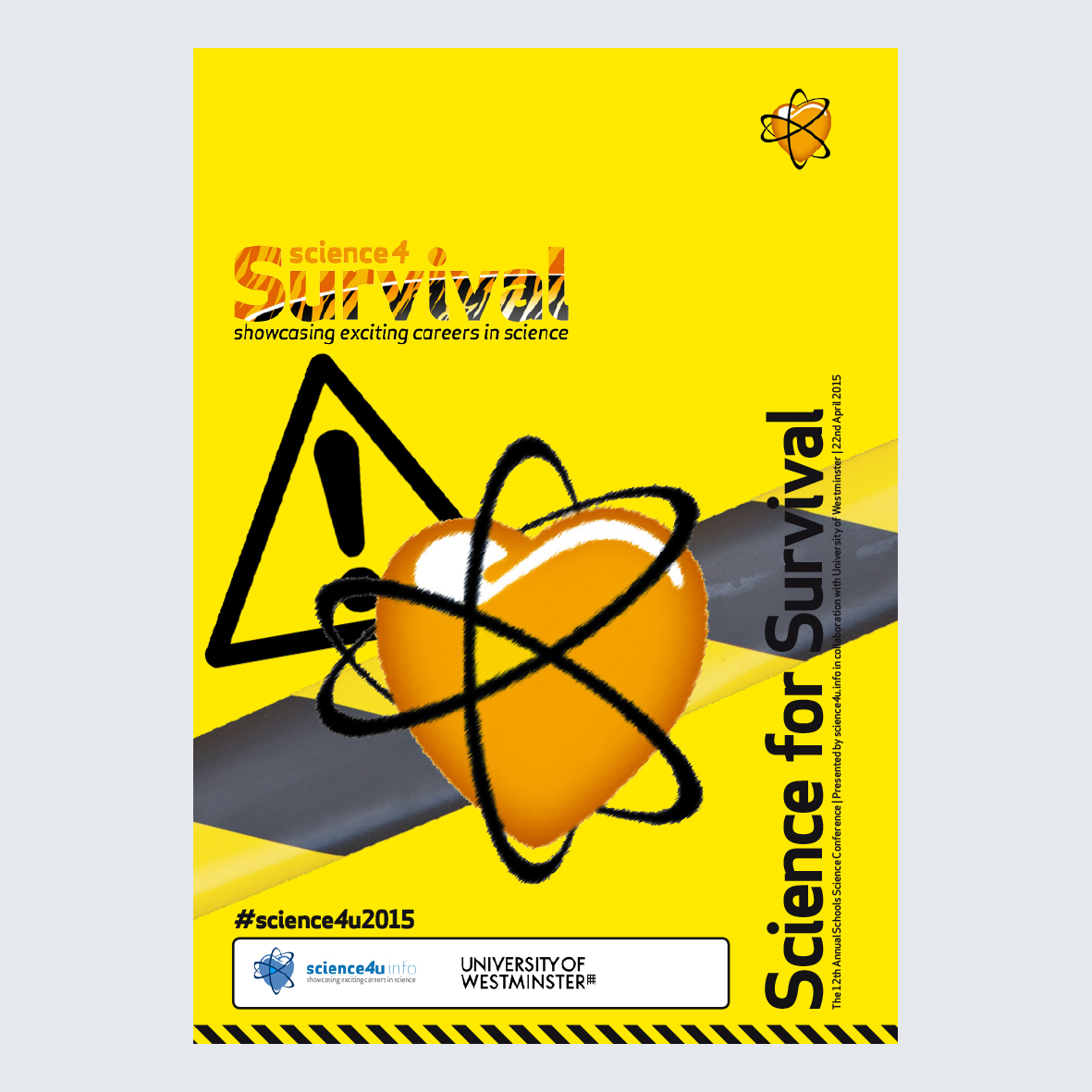Science for Survival
The 12th Annual Schools Science Conference was held on 22nd April 2015 at University of Westminster
Or scroll down to find out more

Welcome to
Science for Survival
The theme of the 12th Schools Science Conference is Science for Survival
The content will cover the challenges that face us today.
This will include sustainability as well as healthcare topics and will range from antibiotic resistance to engineering solutions for water and food for all.
- Superbugs
- Antimicrobial resistance (AMR)
- Staphylococcus aureus (MRSA)
- Clostridium difficile
- Klebsiella pneumoniae
- Escherichia coli (E coli)
- Mycobacterium tuberculosis (TB)
- Antibiotic resistance
Antibiotic resistance is one of the biggest threats facing us today. Without effective antibiotics, many routine treatments will become increasingly dangerous. Setting broken bones, basic operations and chemotherapy all rely on access to antibiotics that work. - Energy supply
How to meet our needs without increasing CO2 – growing demand means we need greater supply, cleanly-generated - Managing resources
Oil, gas and coal (our traditional energy sources) are finite; it’s only a matter of when fossil fuels run out - Rare earth metals
In 2011, costs rose 750%, hindering development of green technologies such as solar panels and wind turbines - Deforestation
Causes extinction, climatic change & desertification – more than half of all plant and land animal species live in tropical forests - Food supply
Although we can relieve hunger through technical measures, the political causes require solutions as well - Water management
780 million people still lack access to clean water; thousands perish daily for lack of it - Global temperature rise
10 warmest years since 1880 in last 12 years – small changes in temperature correspond to enormous changes in the environment - Declining ice sheets
Rapid decline in decades Antarctica and Greenland have been losing an estimated 405 billion tonnes per year - Sea level rise
Global sea rose 17cm in the last century 39% of the world’s population live within 100km of the shoreline - Warming oceans
Rising 0.3 degrees Fahrenheit since 1969 – ecosystems are very sensitive even to modest change - Ocean acidification
Increased 30% since Industrial Revolution – corals, plankton, shellfish and some fish could be gravely affected - Marine plastic
Toxic plastic pieces are eaten by fish; fish are then consumed by humans, resulting in ingestion of toxins
Overview in pictures
A glimpse of the fun, enjoyment and rich array of activities at Science for Survival

Science for Experimentation
Witness riveting presentations and we unveil which school clinched the coveted trophy

Photographs
Explore captivating snapshots captured during this year’s Conference

Quiz
Challenge yourself and put your newfound science and healthcare knowledge to the test

Programme
Discover more about the sessions and view a digital version of the programme

Evaluation
Delve into the reception and gauge the resounding acclaim achieved by the Conference

Acknowledgements
A heartfelt thank you to all the contributors who have brought this event to life

Organising Group
Meet the visionary minds steering Science for Survival: the Committee members














